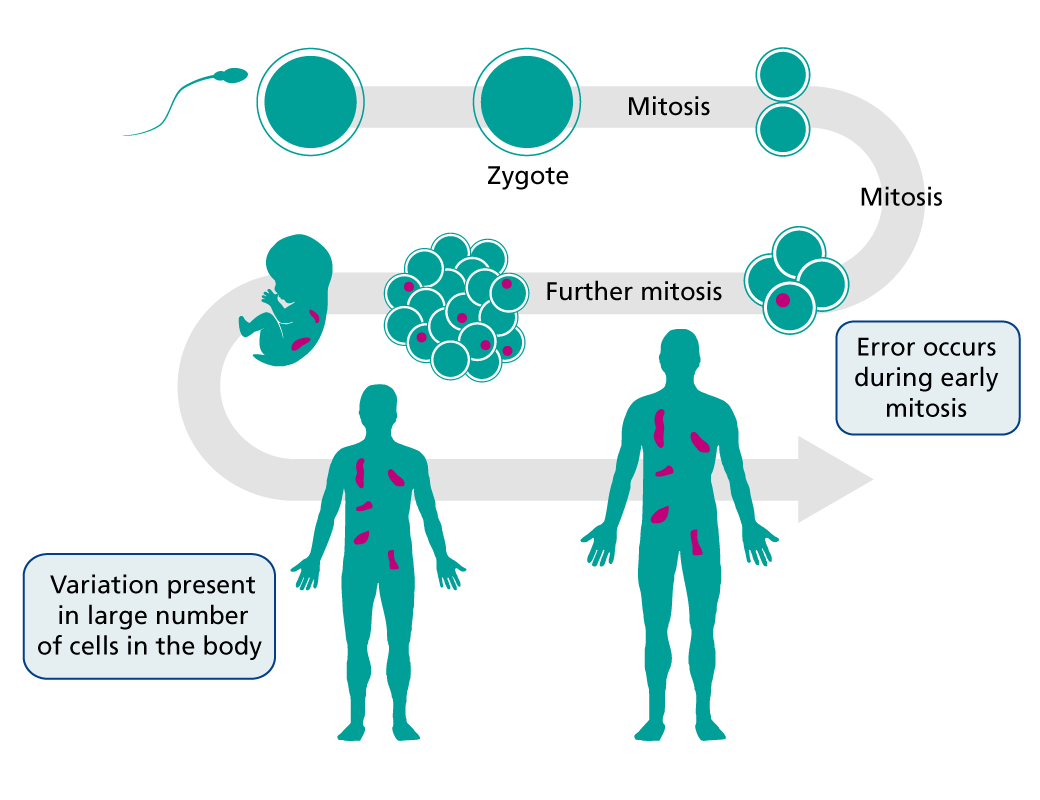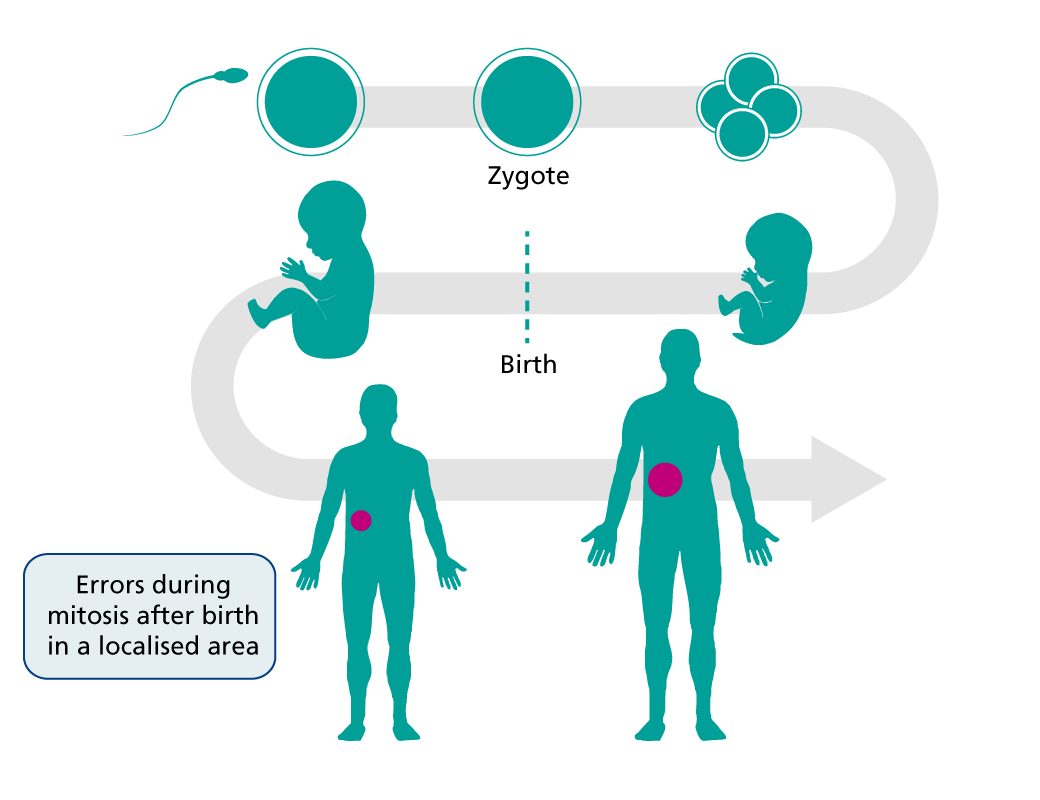Mosaicism
Mosaicism describes the situation where only a subset of the body’s tissues carry a particular variant.
Introduction
Mosaicism is when only some of an individual’s cells carry a specific variant. It can occur in either somatic or germline cells. Mosaicism affecting the somatic tissues can occur during embryonic development or after birth, and the timing will affect the number of cells affected. If a variant arises in a germ cell precursor, leading to germline mosaicism (i.e. affecting the eggs or sperm), the variant may or may not be passed on to offspring.
Somatic mosaicism
- Somatic mosaicism can derive from a variant that occurs during embryonic development (see figure 1), giving rise to an individual with some tissues that have a variant and some that do not.
- The variant can ultimately be present in large numbers of cells in the body, and these can result in a wide range of presentations, even with the same DNA alteration. This is primarily down to which parts of the body the affected cells eventually give rise to. The earlier in development a change occurs, the more parts of the body are likely to be affected.
- In the case of variants in genes that cause genetic conditions, somatic mosaicism may lead to a milder or atypical form of the condition.

Figure 1: Errors during embryonic development.
- Somatic mosaicism can also arise after birth. In these cases, the variant will only be present in a localised area (see figure 2).
- For example, most cancers are the result of changes to DNA occurring later in life, which initially only affect a few cells in a particular region that then go on to proliferate.
 Figure 2: Errors following birth.
Figure 2: Errors following birth.
Germline mosaicism
- Germline mosaicism (also termed gonadal mosaicism) is a rare phenomenon that occurs when a variant arises in a germ cell precursor and is therefore present in only a subset of an individual’s sperm or egg cells.
- In this circumstance, a variant may or may not be passed on to any given offspring, depending on whether it is present in the particular germ cell that forms the embryo or not.
- Germline mosaicism can underlie the very rare recurrence of a previously presumed de novo dominant genetic condition in a subsequent offspring when neither parent is found to carry a constitutional (germline) variant.
Key messages
- Mosaicism describes the situation where only a subset of the body’s tissues carry a particular variant.
- Mosaicism occurs when a new variant arises after cells have started to divide; this may be during embryonic development or after birth.
- Somatic mosaicism can affect a large number of cells or just a few depending on when in embryonic development the variant arises, or if it occurs after birth.
- Germline mosaicism is rare and results in the variant only being present in a subset of an individual’s sperm or eggs. In this case a genetic condition may or may not be passed on to offspring.
Resources
For clinicians
- NHS England Genomics Education Programme: Genomics 101: Inheriting Genomic Information
- NHS England: National Genomic Test Directory and eligibility criteria
For patients
- Unique: Mosaicism (PDF, 2 pages)